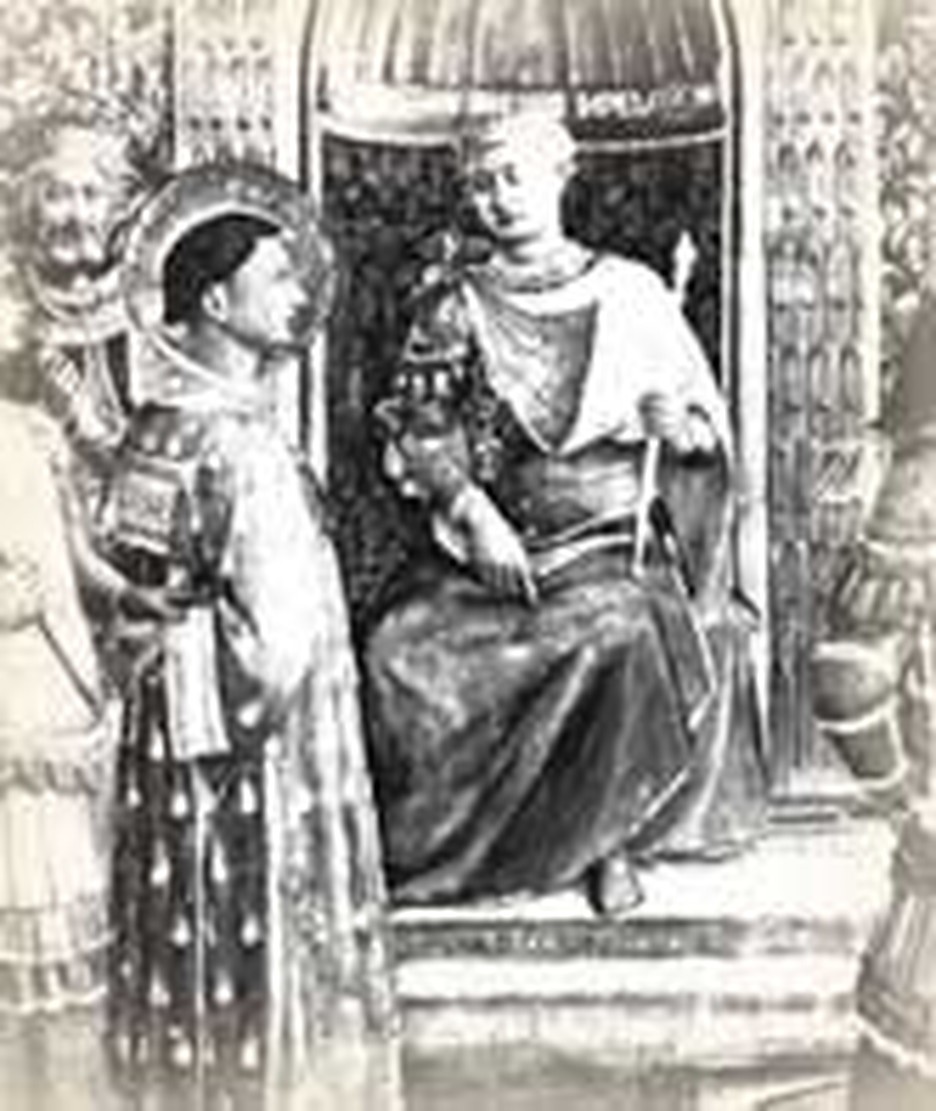
Will you go to Heaven and leave me behind?" Lawrence, one of the seven deacons of Rome, was genuinely upset. Was there some fault in him that God would send the rest of the church leaders to death but spare him?
Sixtus II, Bishop of Rome (pope) in the year 258, comforted Lawrence. God was keeping him back to undergo an even greater ordeal, said the bishop. "Be comforted, you will follow me in three days," he is supposed to have predicted.
The Roman emperor, Valerian, had ordered the death of all Rome's bishops, priests and deacons. The prefect (Roman magistrate) who carried out the order, however, knew that, as deacon, Lawrence had charge of the church's money. "I'll let you go free," he promised, "if you will turn the money over to me."
According to the oldest traditions we have, Lawrence agreed to bring the church's treasures to the prefect. "But it will take me a few days," he said. "The church is very rich."
Released to carry out his promise, Lawrence distributed the church's goods among the poor. He then gathered the city's lame, its blind, and its beggars. On the third day he appeared before the prefect. "Come out and see the wondrous riches of God," he said.
"What is the meaning of this?" raged the prefect.
Lawrence explained that these poor people would some day have new bodies and live forever in Heaven. The treasure of the Holy Spirit was hidden in them as if in jars of clay.
Thwarted from getting his gold and believing that he would be the laughing stock of Rome, the prefect ordered a slow death for Lawrence. On this day, August 10, 258, Lawrence was tortured by having his arms dislocated and then was laid upon a grill and slowly roasted to death. During his ordeal, he is said to have suggested his killers turn him over, remarking that he was "done" on the one side. He was so calm that the pagans who looked on were greatly impressed.
That is how the legends tell the story, but the facts are not easy to establish. What is certain is that Lawrence was martyred on this day. A hundred years later his story was so well known that the famous Bishop Ambrose of Milan wrote about him and so did others. By then, emperor Constantine had long since built a chapel in his memory. Later popes built other memorials and these became Rome's Church of San Lorenzo.
If you enjoyed this article, you might enjoy receiving Christianity.com's weekly email newsletter: This Week in Christian History. Sign up here.
Bibliography:
- Ambrose. "On the Duties of the Clergy," translated by the Rev. H. De Romestin. The Nicene and Post-Nicene Fathers, Second Series, Vol. 10. Grand Rapids, Michigan: Wm. B. Eerdmans Publishing Company.
- Butler, Alban. Lives of the Saints.
- Kirsch, J.P. "St. Lawrence." The Catholic Encyclopedia. New York: Robert Appleton, 1914.
- "Laurence, St." The Oxford Dictionary of the Christian Church. Edited by F. L. Cross and E. A. Livingstone. Oxford, 1997.
- "Lawrence." http://www.catholic-forum.com/saints/saintl02.htm
- Various encyclopedia and internet articles, such as "St. Lawence, Deacon and Martyr." http://www.deacons.net/Deacons_before_us/ lawrence.html
Last update June, 2007








